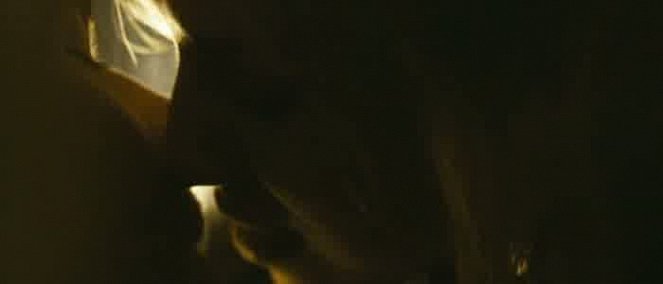Réalisation:
Jan HřebejkScénario:
Petr JarchovskýPhotographie:
Martin ŠáchaMusique:
Aleš BřezinaActeurs·trices:
Lenka Vlasáková, Milan Mikulčík, Martin Huba, Daniela Kolářová, Antonín Kratochvíl, Anna Šimonová, Petra Hřebíčková, Martin Schulz (plus)Résumés(1)
Who can judge past guilt? Who can forgive it? Can the time smooth its edges? Or the penance with which the guilty persons eventually try to save themselves? Jan Hřebejk´s drama based on Petr Jarchovský´s screenplay awarded with Cena Sazky (Sazka Award) creates an intricate chain of questions similar to one another and offers a whole range of often conflicting answers. The core of the story is created by the character of a renowned psychiatrist (Martin Huba), a moral authority, who is to gain an important state award on the occasion of the anniversary of the establishment of the Republic. The upcoming ceremony becomes the catalyzer of events brought up to the surface by the sins of the past that can cut his neck. (texte officiel du distributeur)
(plus)Critiques (7)
Thanks to its music and actors, Kawasaki’s Rose is an emotionally consistent drama (without a modifier, which isn’t usual in Hřebejk’s case), despite the fact that the film never “settles down” – new characters constantly appear, there is no clearly defined narrator and the story jumps around. Apparently inspired by investigative documentaries, this structure doesn’t always completely serve the drama, but sometimes breaks it down into a number of fragments, though it also enriches the film with a certain element of veracity. The film is easily believable, though a few lines were obviously conceived in the screenwriter’s head rather than in the heads of the characters speaking them. Kawasaki’s Rose is Hřebejk’s most meaningful film in a long time. 75%
()
I gave Hřebejk a chance after all these years, knowing with malice that the subject matter would destroy him and I would be able to continue to say with satisfaction that things are getting worse and worse with Czech cinema. But I was surprised when he and Jarchovský staged a series of twisted family relationships as a steamy thriller, in which Šácha's fantastic cinematography works its magic, capturing a plethora of accomplished actors. Hřebejk takes the viewer through a series of escalating situations, the two most perfect of which (the love triangle meeting, the argument in the woods) I will probably never get out of my head. I humbly apologize and keep the fifth star in reserve for when I watch it again. The question is whether I will ever have the appetite for it again.
()
A very serious topic, but the processing is only about halfway there. Some of the scenes reveal Hřebejk as we knew him during the times Divided We Fall. Other (mainly family scenes) occasionally have a whiff of the effects of his recent entertainment money grabs. The introduction mainly consists of asexual awkwardness and strangely affected statements. Later on, a lot of fundamental questions arise, 50% of which the film capitalizes on. The conclusion is symptomatically stuck between and excellent suggestion and a literal pathos that is saved only by the excellent Huba. Violent sentence constructions sound smooth from his lips. Overall, I would rank Hřebejk's work in third place behind Protector and 3 Seasons in Hell. At the same time, given its current theme, Kawasaki's Rose should have been the best. For a film that opens one of the most burning topics of today, it talks more than it actually says. However, Jarchovský and Hřebejk deserve respect again after all these years – if only because they comprehensively describe the problem of informing on others. However, I wish their film would have provided as much suggestive purgatory as the German film The Lives of Others. These is always something to learn.
()
In the first half, which deals with family relationships, frustrations, infidelity, and serious illness, the film works very well thanks to its perspective, a very decent cast, and Hřebejk's directorial professionalism. Despite a certain absurdity in what is shown, it is, so to speak, true to life. In the second half, basically from the moment the story moves to Sweden and problems with the protagonist's failure to cooperate with the secret police are addressed, the whole project starts to stumble. This is what dealing with the Czech past looks like in the minds of Czech intellectuals, not in real life. The German or Japanese economic miracle was often built by former war criminals, SS men, and members of the NSDAP, and the luxury of critically evaluating their country's past was only possible for the following generation, which was not personally involved. And in the overwhelming majority of cases, there was not even such a reconciliation as in Germany. In the Soviet Union, five men were put on trial for ten million dead, and that was within the power struggle in the Politburo. I believe that in very individual and rare cases, some informer may have apologized to their victims in private. However, the self-flagellation process chosen by Hřebejk's protagonist is far dumber than a violent pedophile's attempt to cleanse their conscience at a congress of esteemed mothers. The plot is contrived, some scenes and dialogues reek of pathos, and if it weren't for Martin Huba's professionalism, the outcome would be even worse. Overall impression: 70%.
()
Another subjective interpretation of Czech history by the permanent self-proclaimed narrators is here. We clap, we high-five and we dearly appreciate it. But for what? A broken-down puzzle of stories that would put a bachelor student’s short story to shame?
()
Le film le plus sérieux de Jan Hřebejk mérite éloges et admiration pour la qualité de sa mise en œuvre. Personnellement, je n’aimais pas trop Hřebejk, mais j’ai appris à l’apprécier avec le temps, en particulier après qu’on ait commencé à lui tourner le dos suite à Medvídek. Je lui fais confiance et lui souhaite de pouvoir maintenir le tempo de son modèle Woody Allen.
()
Damn, the topic is not bad at all and sometimes I would like to make a similar story that has depth, both social and human. Unfortunately, the form in which it is presented, essentially like a meditation, is not that great. And maybe the strongest scene should not be where the husband tries to convince his wife with his mistress that he actually did nothing wrong and that they just need to talk about it. This family line is just at the beginning and in context, it seems unnecessary.
()

